AI in Education: How Artificial Intelligence is Transforming Student Learning and Assessments
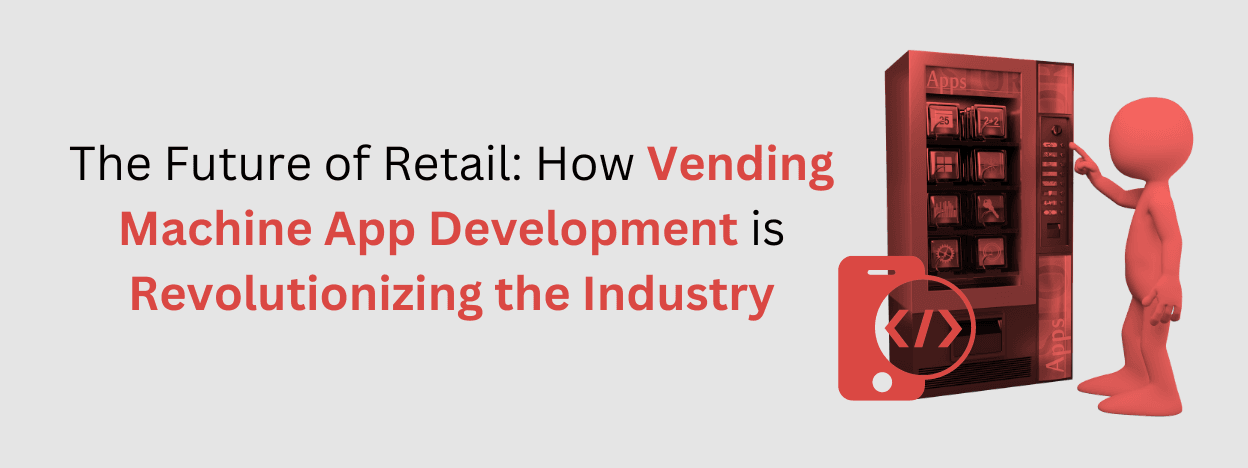
The education industry is undergoing a massive digital transformation, and at the center of it is Artificial Intelligence (AI). From personalized learning experiences to AI-powered student assessments, institutions worldwide are adopting intelligent technologies to improve outcomes for learners and reduce the workload on educators.
In this blog, we’ll explore how AI in education is changing classrooms, reshaping student learning, and making assessments smarter, faster, and more accurate.
What is AI in Education?
Artificial Intelligence in education refers to the use of machine learning, natural language processing (NLP), and data-driven algorithms to enhance teaching and learning. Unlike traditional digital tools, AI systems can analyze student behavior, adapt to individual needs, and deliver personalized insights in real time.
Some common applications of AI in education include:
- Adaptive Learning Platforms that adjust difficulty based on student performance.
- AI Tutors & Chatbots that provide instant support outside of classrooms.
- Automated Grading Systems that save teachers’ time.
- Predictive Analytics that help educators identify students at risk of underperforming.
AI in Student Learning
AI is revolutionizing how students learn by personalizing education and making classrooms more engaging.
1. Personalized Learning
AI-powered platforms analyze how students interact with content and create customized learning paths.
For example, if a student struggles with algebra but excels in geometry, an AI-powered learning platform will:
- Simplify complex concepts in algebra into smaller, easy-to-digest explanations.
- Provide practical, real-world examples so the student understands why a concept matters.
- Recommend extra quizzes and mock exams on weaker subjects to build mastery.
- Adjust the difficulty level dynamically as the student improves.
At Appristine Technologies, we design and build AI-powered learning applications that deliver exactly this kind of personalized education—whether by creating custom AI models or integrating existing ones.
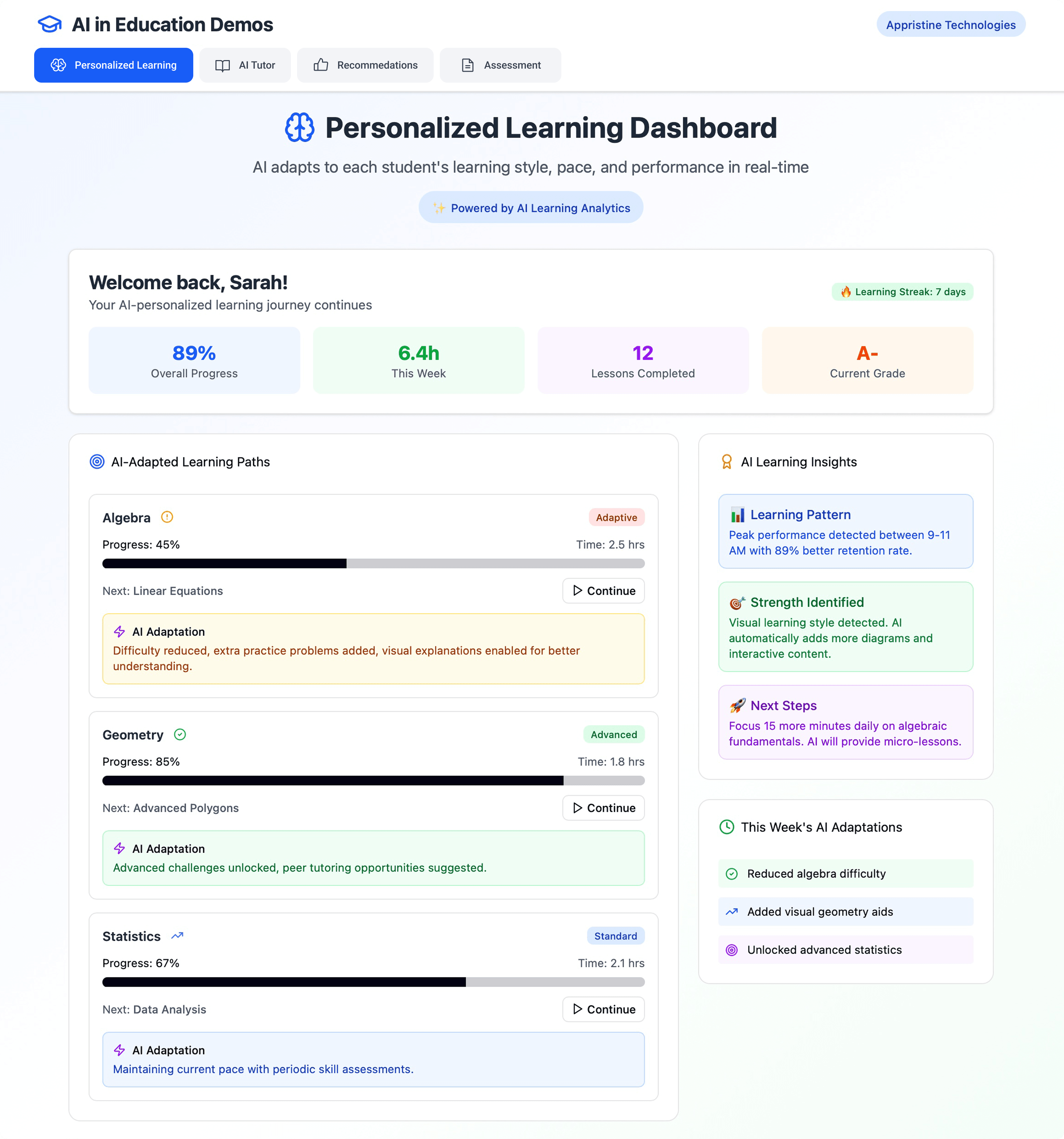
2. AI Tutors & Virtual Assistants
Chatbots and AI tutors provide 24/7 learning support. They can explain difficult concepts, answer student questions, and suggest extra practice material. A great example is Khan Academy’s GPT-4 powered AI tutor.
At Appristine, we help schools and institutes create AI tutor solutions with features like:
- AI-powered chat interfaces where students can ask questions.
- AI avatars that simulate a classroom-like tutoring experience.
- Knowledge assistants trained on your institution’s syllabus.
Looking to build your own AI tutor? [Contact Appristine Technologies today].
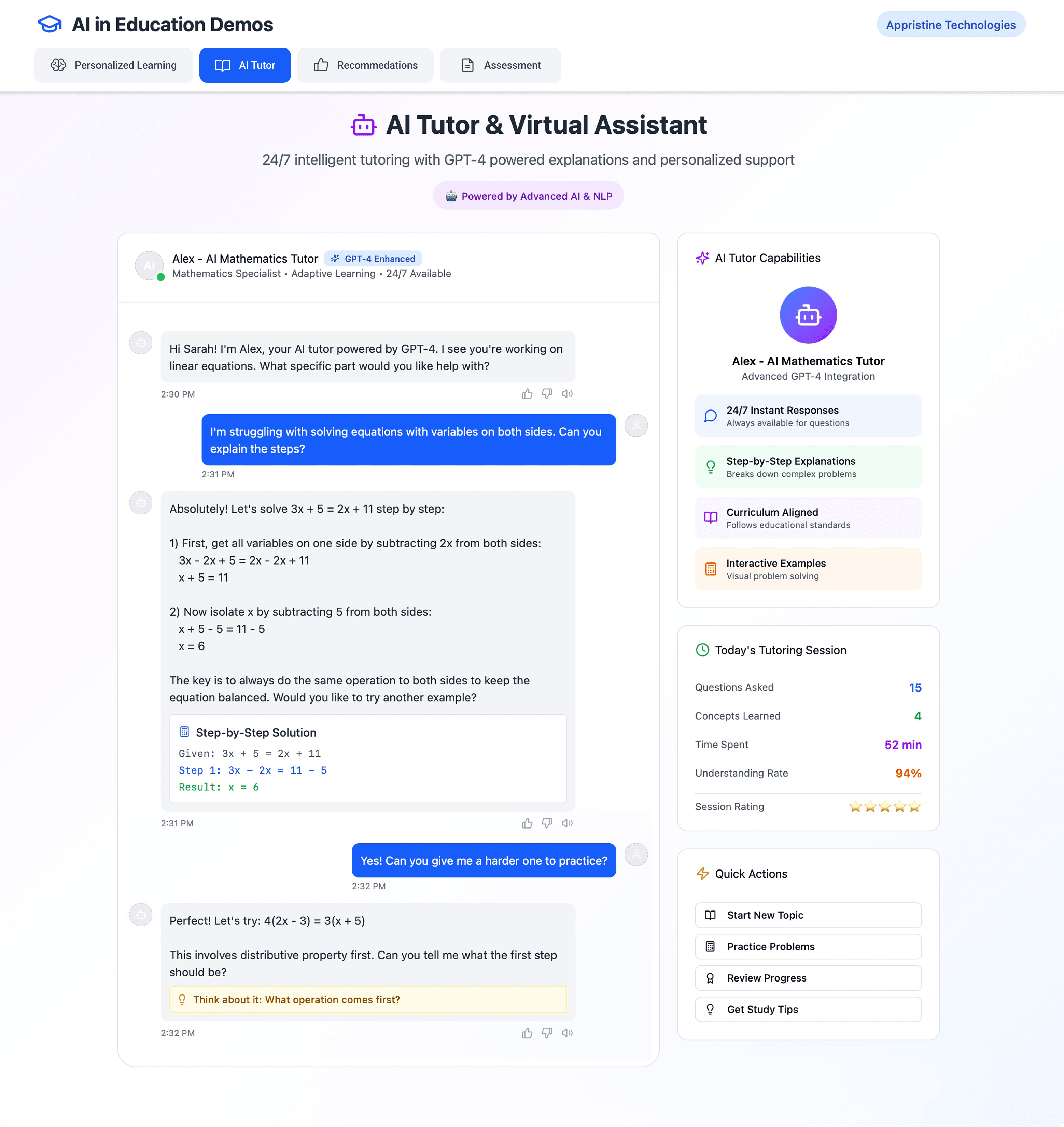
3. Smart Content Recommendations
Just like Netflix suggests movies, AI recommends learning materials, videos, and exercises based on student progress. These personalized recommendations:
- Boost confidence.
- Maintain student engagement.
- Allow learners to move at their own pace.
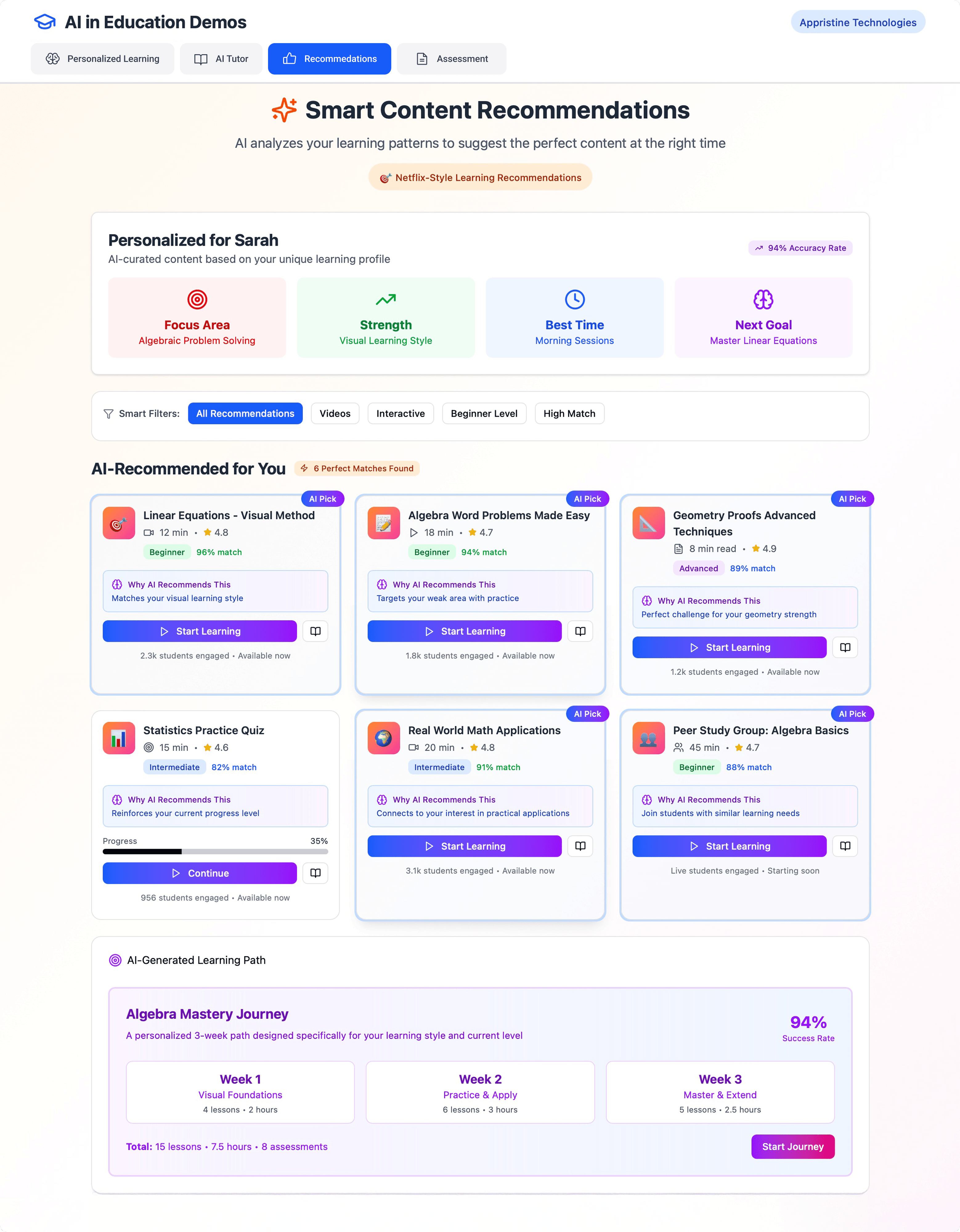
4. Immersive Learning with AR/VR
AI integrated with Augmented Reality (AR) and Virtual Reality (VR) creates interactive learning experiences—such as virtual science labs, historical site tours, or medical 3D models—that make education more engaging and memorable.
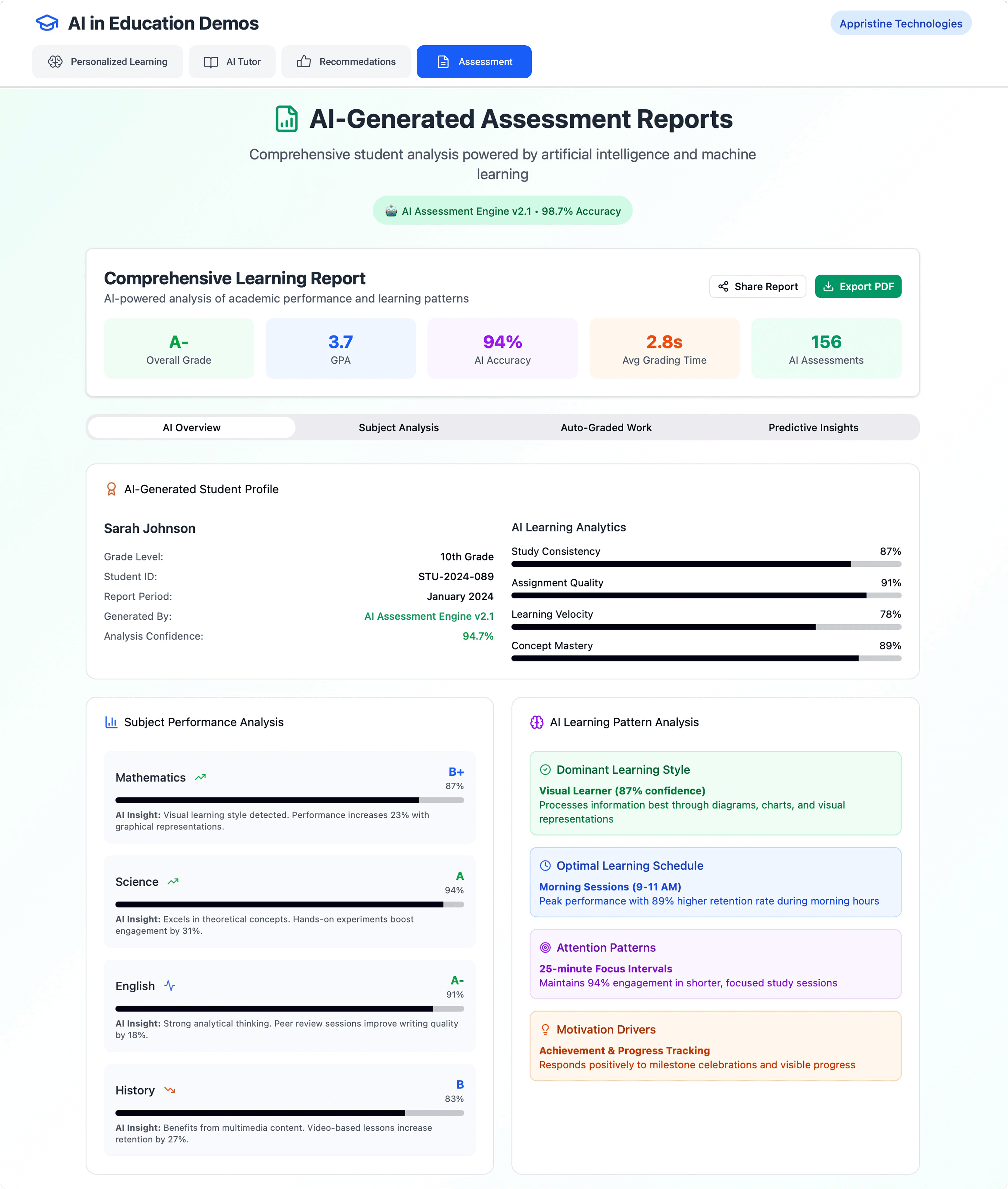
AI in Student Assessments
Assessment is one of the most time-consuming tasks for educators. AI makes assessments faster, unbiased, and more effective.
1. Automated Grading
AI tools can grade multiple-choice tests, essays, and coding assignments in minutes.
Benefits:
- Students receive instant feedback.
- Teachers save hours of manual grading.
- Institutions can digitally store results for future predictions.
2. AI-Powered Proctoring
With the rise of online exams, AI ensures fairness and integrity by using:
- Facial recognition.
- Eye-movement tracking.
- Behavioral analysis to detect cheating.
3. Performance Analytics
AI generates detailed performance reports:
- Full progress cards showing strengths and weaknesses.
- Predictive insights into future performance.
- Auto-generated PDF report cards for easy sharing with students and parents.
4. Adaptive Testing
Unlike traditional exams, AI-driven assessments adjust question difficulty in real time based on student responses. This ensures a fairer and more accurate evaluation of each student’s knowledge.
Benefits of AI in Education
- For Students: Engaging content, personalized learning, faster feedback, improved motivation.
- For Teachers: Reduced admin work, quicker grading, deeper insights.
- For Institutions: Better efficiency, predictive analytics, improved results.
- For Parents: Clear visibility into progress and performance.
Challenges in AI Adoption
- Data Privacy – Protecting sensitive student data.
- Algorithm Bias – Avoiding unfair outcomes.
- Cost & Infrastructure – Especially challenging for smaller institutions.
- Teacher Training – Ensuring smooth adoption.
Future of AI in Education
- Predictive Analytics for career guidance.
- AI-Powered Mentors for lifelong learning.
- Metaverse Classrooms for global immersive learning.
- Skill-Based Assessments driven by AI insights.
Conclusion
AI in education is not just a trend—it’s the future. By enabling personalized learning, smart assessments, and data-driven insights, AI is transforming how students learn and how teachers teach.
At Appristine Technologies, we specialize in building AI-driven education platforms that empower schools, colleges, and EdTech startups to create smarter learning experiences.
Let’s build the future of education together. [Contact us today!]

